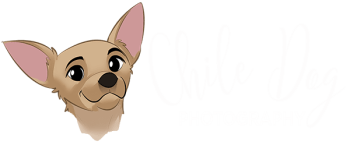Adoption Story of Romeo the Yorkipoo
The story of Romeo, a Yorkiepoo, illustrates the charm and charisma that this breed embodies. Like his name suggests, Romeo is indeed a charmer. He was adopted from rescue organization. Despite his rough start, Romeo captivated everyone he met and when Lauren saw him on the rescue's website, it was love at first sight. With eager eyes full of spark, and an insatiable drive to give and receive love, Romeo was quickly adopted by a caring family prepared to lavish him with affection and proper care. Today, Romeo lives joyfully as a cherished member of the family, reciprocating all the love he receives in abundance. He has transformed from being a lost, abandoned dog, into a loved and well-cared-for pet, bringing joy and happiness to his adoptive family every day.
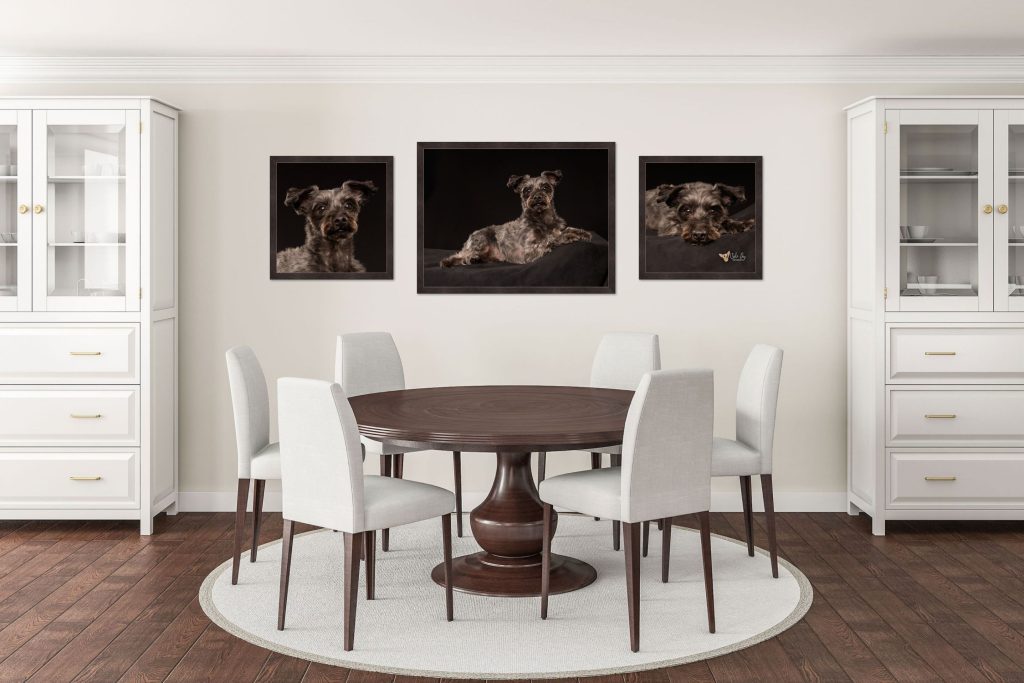
About Yorkiepoos
Yorkie Poos are a designer dog, a fusion of a Yorkshire Terrier and a Toy Poodle or Miniature Poodle. These small dogs, sometimes referred to as Yorkipoos, Yorkie-poos, or Yoodles, typically weigh between 4 and 15 pounds and make great family pets. The Yorkie Poo is loved for its friendly and intelligent nature and ease of training. Low-maintenance and ideal for first-time dog owners, they are good with children and other pets. These companion dogs are known for their soft, wavy coat, which comes in various colors like black, brown, cream, and white, providing a beautiful contrast to their lively nature.
Many consider them to be a hypoallergenic dog thanks to being a poodle mix. However, this also means that a yorkipoo's coat needs regular grooming. The Yorkipoo’s coat can vary from straight to curly, offering a soft and silky texture that is delightful to the touch. Grooming these small dogs is relatively easy due to their size. Finding a good groomer can help maintain their coat or teach owners how to care for it as it develops. Since Yorkipoos are a "designer breed", their coat can resemble either a Yorkshire Terrier’s soft, straight, and shiny coat or a Poodle’s thicker, coarser, and curly coat.
History of the Designer "Breed"
The Yorkipoo, also known as a Yorkie Poo, is a "hybrid dog breed" that emerged relatively recently in the United States. This delightful hybrid breed resulted from crossing a Yorkshire Terrier with either a Toy or Miniature Poodle. The intention behind designer crossbreeds was to create a small-sized pet with an allergen-friendly coat, particularly beneficial to people with allergic reactions to dogs, without losing the charisma, intelligence and attractive qualities of both parent breeds. Additionally, the objective was to reduce genetic health issues that were common in Yorkshire Terriers and Poodles due to subpar breeding practices.
Even though Yorkie Poos have been around for a few decades, they truly gained popularity in the early 2000s. Largely due to their hypoallergenic properties and infectious charm, these little dogs captured the hearts of the public and social media. Most Yorkipoos resulted from first-generation breeding, combining purebred parents. Progressive breeders initiated multigenerational breeding to refine the breed characteristics to a consistent standard as the Yorkipoo breed evolved.
While the Yorkipoo is not officially recognized by major kennel clubs or breed registries, it has gained acceptance and attention among enthusiasts. Dedicated breeders and owners strive to develop this unique and fascinating breed, highlighting its appealing qualities as a friendly, intelligent, and easy-to-train and affectionate dog.
Physical Attributes and Temperament
Yorkie Poos are small dogs with a stature that perfectly aligns with their vibrant personalities. They come equipped with a range of physical attributes that enhance their charm and make them a delight to have around.
- Size: The Yorkipoo's compact size, roughly 7 to 15 inches tall at the shoulder, makes them ideal for apartments and small living spaces. They typically weigh between 4 to 15 pounds (2 to 7 kg).
- Coat: Yorkipoos possess a unique, hypoallergenic coat type that ranges from being straight to wavy or curly. Their fur is soft to touch and comes in multiple colors, including black, brown, cream, and white.
- Temperament: Known for a lively and affectionate demeanor, the Yorkipoo enjoys being around people. These dogs are intelligent and quickly respond to training, demonstrating a great mix of the Yorkshire Terrier's boldness and the Poodle's easygoing nature.
- Energy Level: In spite of their small size, their energy levels are considerably high. As a result, they require daily exercise and mental stimulation to keep them content and prevent boredom-induced destructive behaviors. The physical stimulation of walking a Yorkie Poo has great benefits for their owners, too!
- Adaptability: Being a hybrid of two adaptable breeds, Yorkie Poos adjust well to different environments and can be perfect companions for families of all sizes.
In summary, the Yorkipoo's physical attributes and lively temperament make them excellent companions. Their small size and hypoallergenic coat make them perfect fits for individuals with restricted living space or allergies, ensuring nobody misses out on the joy of having a furry friend around.
The Studio Photo Session
An interesting aspect of owning a Yorkipoo is their photogenic qualities which make them perfect subjects for a photo session. The studio photo session in this story aims to capture the essence of Romeo, showcasing his vibrant personality and unique appearance. The process includes preparing Romeo to be at ease in front of the camera and then capturing the delightful moments that occur. A picture can speak a thousand words, and for this Yorkipoo, a photo session would paint a vivid portrait of his endearing personality.
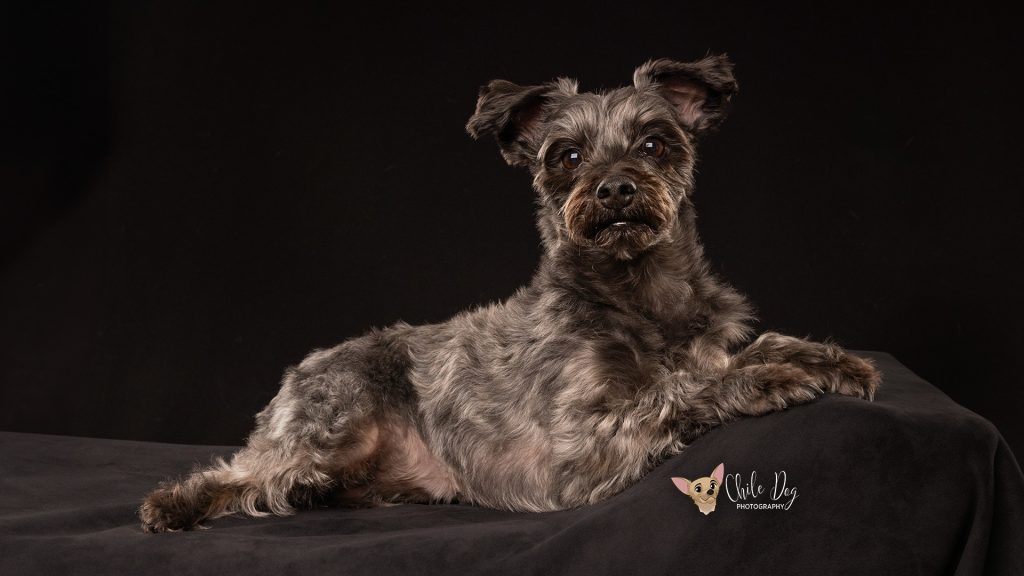
Preparing Romeo for the Photo Session
Preparing Romeo for his special photo session is an intricate process involving patience and gentle persuasion. The goal is to ensure that Romeo is comfortable and at ease throughout the shoot. Key steps involved in the preparation include:
- Professional Grooming: Before the photo session, Romeo is given a professional grooming. His fur was properly brushed to give it a shiny and vibrant appearance. His eyes and ears were cleaned and the hair around his eyes was clipped so that I could see them. I can do "eye transplants" in Photoshop, but I prefer not to. His nails were also trimmed to ensure that every part of him looked great. I always recommend waiting about two weeks between grooming and a photo session, just like I do with haircuts before headshots of people.
- Creating a Calm Environment: Prior to beginning the photo session, I spend time to create a calm and peaceful ambiance suitable for Romeo. My studio is quiet and minimizes distractions. Sometimes I use a familiar blanket or toy to make subjects feel secure and comfy.
- Natural Posing: Instead of forcing poses, Romeo was allowed to take on natural poses that showcased his personality. He could be playing with his favorite toy, snoozing, looking at a treat or merely gazing at his surroundings. The aim is to capture his genuine moments, reflecting his true essence.
- Rewarding with Treats: Throughout the photo session, Romeo was rewarded with some of his favorite treats for remaining patient and cooperative. These rewards also acted as motivation for him to continue posing and doing his best.
- Post-Session Relaxation: After the hard work of posing and being photographed, Romeo is given some downtime to unwind. This includes a gentle massage, a quiet nap, or some free playtime.
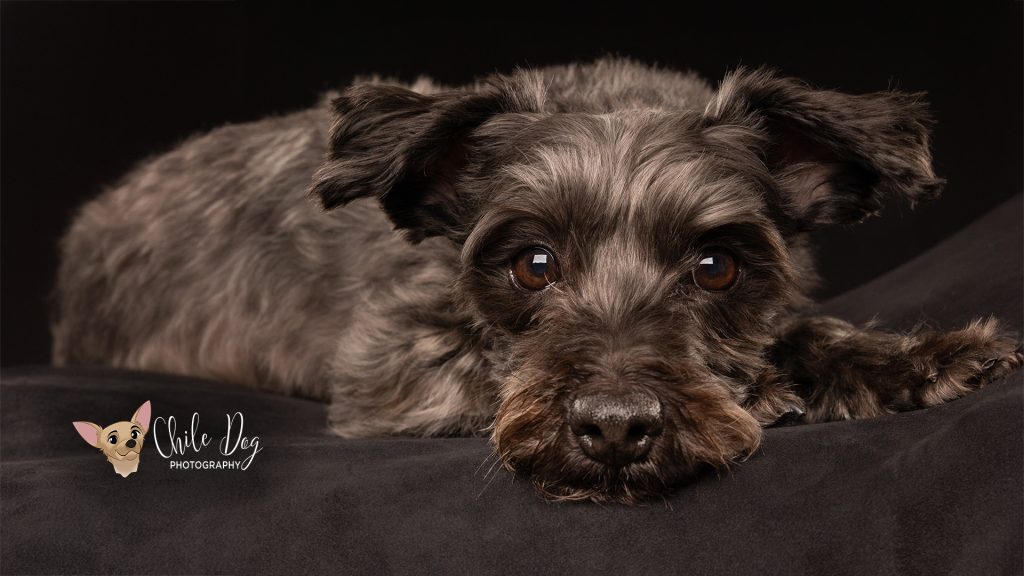
Capturing Delightful Moments
The photo session was an opportunity to capture the delightful moments that showcase the unique personality, charisma, and physical attributes of Romeo, the Yorkipoo. Here are a few remarkable instances from the session:
- Active Play: Romeo found a squeaky toy and leaped for joy, his bouncy energy and joyful expressions beautifully captured by my camera.
- Gentle Snooze: In a moment of calm, Romeo almost drifted to sleep in the quiet studio atmosphere, his serene facial expression accentuated by his shiny, well-groomed fur creating an endearing portrait.
- Inquisitive Glance: Upon hearing a curious sound, Romeo's inquisitive glance towards the source was frozen in a photograph, reflecting his alertness and attention to detail.
- Posing Perfection: Showing off his striking looks, a portrait was taken of Romeo lying perfectly on my bench, confidently directing his gaze to the lens, showcasing his photogenic nature.
- Animal/Human Bond: A beautiful portrait captured the warmth and love shared between Romeo and Lauren, a testament to the special bond between dog and owner.
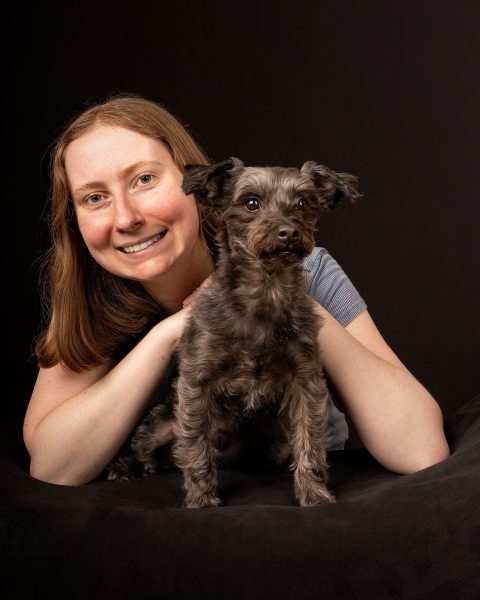
With some planning and quick fingers on the camera, we captured all these sweet moments, showcasing Romeo's lively personality and charm.
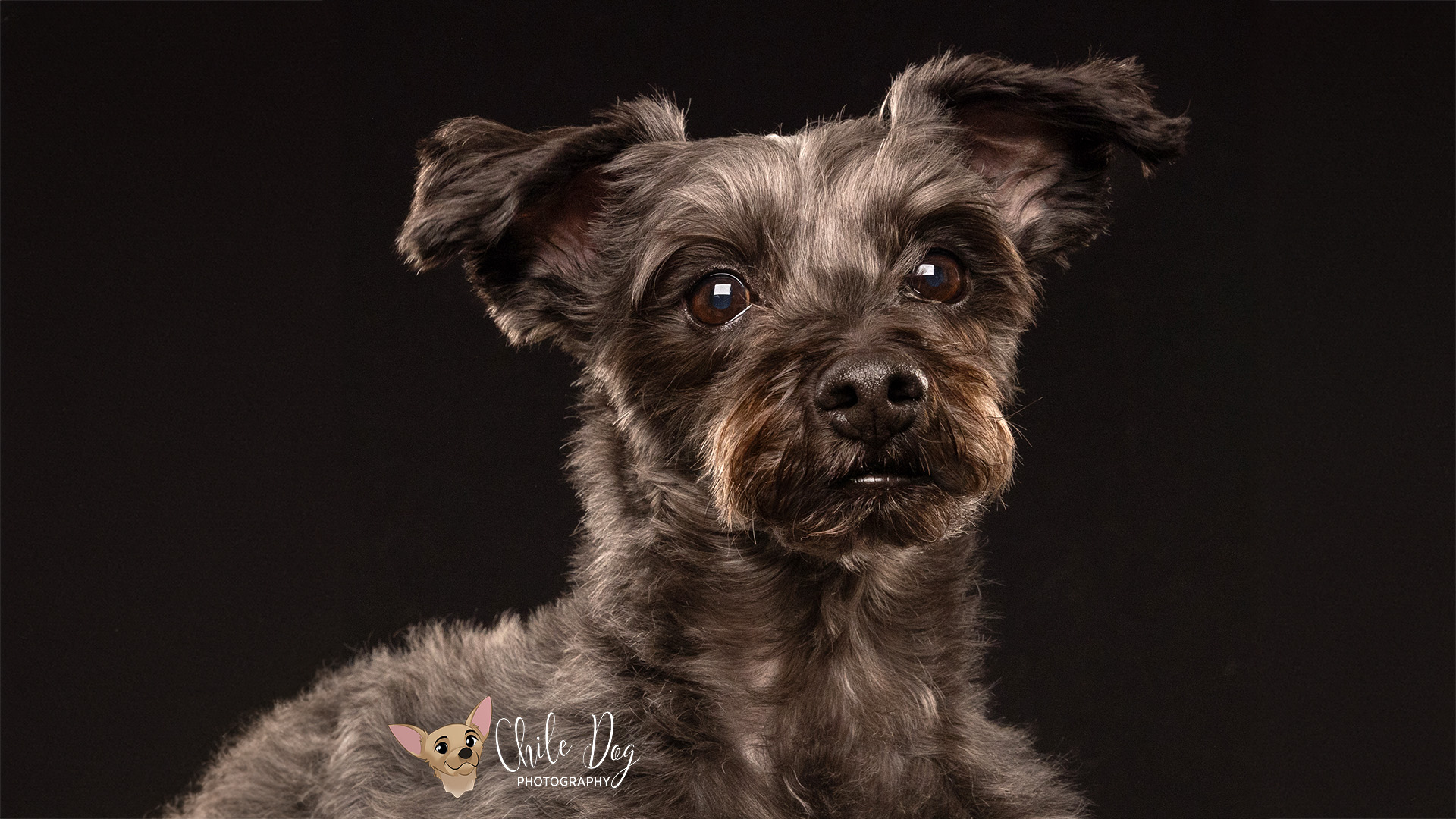
The On-Location Photo Session
Taking the camera beyond the confines of a studio is like injecting adrenaline into the veins of a photo session. By opting for an on-location shoot for Romeo, we injected a dose of adventure into his narrative. These sessions peel back the layers of the Yorkipoo's personality in a more natural setting, allowing us to capture his essence as he navigates the world beyond the studio walls. From selecting the perfect location to the intricate process of immortalizing Romeo's moments outdoors, this experience was nothing short of a poetic exploration into the broader canvas of his life.
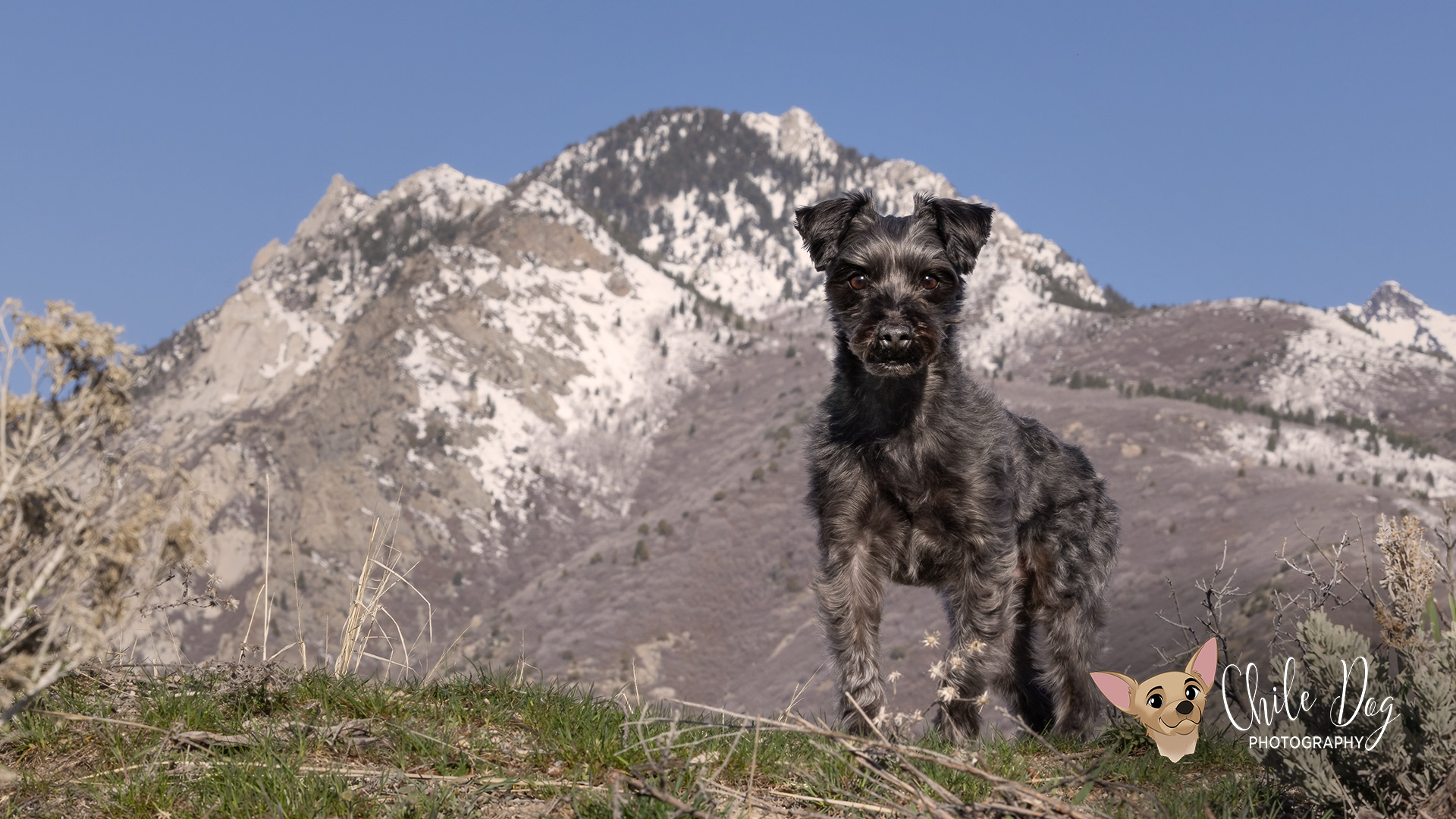
Selecting the Perfect Outdoor Location
Dimple Dell Regional Park was the perfect outdoor location for Romeo's photo session as it emphasized his playful and explorative nature. Given the adaptability of Yorkipoos to both urban and natural environments, an open park was selected as the setting. This location offered the excitement of unfamiliar smells, and scenic beauty.
We paid careful attention to ensure the location wasn't overly noisy or crowded, which might be disconcerting for Romeo. The park was abundant in natural light and we arrived in time for the "Golden Hour." I didn't need my strobe to capture fresh, vivid pictures. I used a long lens (70-200mm f2.8) to both blur the mountains behind Romeo as well as show more detail in some images.
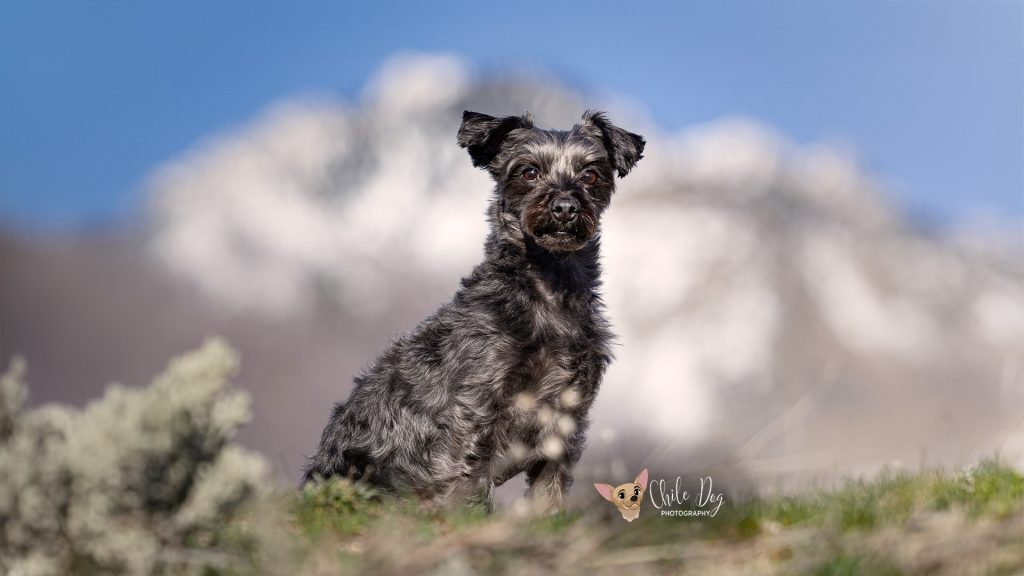
I chose a berm in front of the Wasatch Mountains to showcase Romeo's big personality for some portraits. Blurring the background accentuated the charm and color contrast, making Romeo stand out. For action shots, we chose an open trail. Poor little guy was all worn out by the time we were done. Dogs always let you know when they've had enough.
Before finalizing the location, I visited it several times at the desired shooting time. I did this to understand the crowd possibilities, natural lighting conditions, and the availability of shade during that hour.
Dimple Dell is a blend of vibrance, tranquility, and fun elements, offering a captivating setup for Romeo's outdoor photo session.
Health Issues and Care for Yorkie Poos
If this post has inspired you to consider a Yorkie Poos for your family, it's essential to be aware of potential health concerns that could affect them due to their mixed breed nature. Familiarity with the common health issues and corresponding preventive measures can ensure your Yorkie poo stays happy, healthy, and becomes a good fit for your family. This includes understanding their dietary needs, exercise requirements, potential health conditions and grooming needs to provide a healthy, nurturing environment.
Common Health Concerns
The Yorkipoo, like any breed, can experience health challenges. On top of genetic health risks, there are common health issues found in small toy breeds which Yorkipoos may inherit. As responsible pet owners, awareness of these possible health problems helps ensure the proactive management of your dog's health. A few possible health problems for Yorkipoos include:
Diseases and Conditions
|
Disease |
Symptoms |
|
Epilepsy |
Seizures, unusual behavior, staggering |
|
Hypoglycemia (Low Blood Sugar) |
Lethargy, disorientation, seizures, low body temperature |
|
Intervertebral Disc Disease (IVDD) |
Suddenly pain, hunched back, paralysis |
|
Patellar Luxation |
Discomfort, limping |
|
Hip Dysplasia |
Hind end lameness, loss of thigh muscle, bunny-hopping gait, lethargy, stiffness, pain |
|
Legg-Calve-Perthes Disease |
Limping, muscle wasting, pain |
|
Hypothyroidism |
Hair loss, obesity, dry skin |
|
Hyperadrenocorticism (Cushing’s Disease) |
Increased thirst, appetite, lethargy, pot-belly, thin skin, hair loss, recurring skin infections. |
|
Hypoadrenocorticism (Addison’s Disease) |
Increased thirst, vomiting, poor appetite, weight loss, lethargy, tremblih |
|
Atopic Dermatitis |
Itching, redness, hair loss |
|
Liver Shunt (Portosystemic Shunt - PSS) |
Poor growth, seizures, poor appetite, and other nonspecific gastrointestinal signs |
While these conditions are commonly seen in Yorkipoos, it does not imply that every Yorkipoo will get these diseases. Regular checkups and health consultation with your vet can help detect early symptoms and prevent severe health problems.
Preventive Measures and Treatments
An optimal combination of preventive measures can ensure a healthy life for your Yorkipoo. Being a mixed breed dog, a Yorkipoo can have conditions from either the Yorkie parent or the Poodle parent. Awareness about potential health issues enables you to catch things early and provide necessary intervention. Regular visits to the veterinarian for check-ups and vaccinations are crucial in preventing diseases.
- Epilepsy: Although there isn't a cure for epilepsy, proper treatment helps control seizures. Medications such as phenobarbital or potassium bromide provide relief.
- Intervertebral Disc Disease (IVDD): A common condition in which spinal discs degenerate or herniate, leading to pain, discomfort, and potential nerve compression. Treatment options for IVDD range from conservative measures such as rest, medication, physical therapy, and weight management to more invasive interventions like surgery.
- Patellar Luxation: Regular physical exercise and maintaining an ideal weight reduces strain on the knees. In severe cases, corrective surgery might be recommended.
- Hip Dysplasia: A common inherited condition in toy dogs, it can lead to discomfort and decreased mobility. Early detection through X-rays and regular screening is key to managing this condition effectively. Treatment options vary from weight control, medication and physiotherapy to surgical procedures such as hip replacement for serious situations. Regular exercise tailored to your Yorkipoo's needs can help strengthen muscles and joints, reducing the risk of hip dysplasia development.
- Legg-Calve-Perthes Disease: This disease commonly appears in small dog breeds, usually affecting dogs in their early months. This condition happens when the femoral head loses its blood flow and disintegrates within the hip joint. The options for treatment include a surgical procedure to extract the femoral head or a costly and distressing total hip replacement surgery for the dog.
- Hypoglycemia (Low Blood Sugar): Many small breed dogs are susceptible to low blood sugar, which can cause lethargy, disorientation, and other health issues if not managed properly. It is important to monitor their eating habits and provide them with meals at frequent intervals to prevent hypoglycemia.
- Hypothyroidism: Lifelong treatment with thyroid hormone replacement will maintain regular thyroid functionality and give your dog a normal life.
- Hyperadrenocorticism (Cushing’s Disease): Treatment for "pituitary dependent" hyperadrenocorticism typically involves common medications or hypophysectomy as a surgical alternative. Adrenal tumor cases can be managed medically, but complete cure may necessitate adrenalectomy to remove the affected gland.
- Hypoadrenocorticism (Addison’s Disease): Lifelong medication is required to replace the lacking hormones to manage Addison's disease.
- Atopic Dermatitis: Allergen avoidance, antihistamines, and special shampoos help manage symptoms.
- Liver Shunt (aka Portosystemic Shunt - PSS): Diets with lower protein, surgical intervention, and medications help manage PSS.
Avoiding exposure to allergens, frequent grooming that includes checking for any skin abnormalities, and a balanced diet with adequate hydration contribute to overall health. Regular teeth cleaning and maintaining optimal weight are other effective preventive measures. Discuss these precautions with your vet during your routine visits for personalized advice based on your Yorkipoo's health.
Tips for Raising a Thriving Yorkie Poo
When considering tips for raising a thriving Yorkie Poo, it's essential to focus on their health and well-being. Yorkie Poos are a mix of Yorkshire Terriers and Miniature Poodles, prone to health problems from both parent breeds. Positive reinforcement is key for these small dogs, known for their separation anxiety. Providing high-quality dog food tailored to their small size is crucial, especially considering potential health issues. Regular exercise, early training, and socialization help manage their energetic nature. Crate training, proper grooming, and obedience training are vital for a Yorkie Poo's overall health and happiness. In short, attentive care and a loving environment contribute to a thriving Yorkie Poo.
Grooming Requirements
The Yorkipoo's silky coat necessitates regular grooming for maintenance. Regardless of being non-shedding or low-shedding, regular brushing helps keep the Yorkipoo's fur free from matting and tangling.
- Brushing Regularity: It's advisable to brush the Yorkipoo's coat daily. This habit ensures the coat remains clean, untangled, and reducing any shedding.
- Baths: Regular bathing helps maintain a clean coat, essential for minimizing allergies due to dander. Using a dog-friendly, hypoallergenic shampoo prevents skin irritation.
- Eye Cleaning: Keeping the area around the eyes clean prevents irritations and infections, especially in Yorkipoos with teary eyes. Care should be taken to gently clean these areas using safe products.
- Ear Cleaning: Regular ear checks and cleaning, recommended weekly, prevent the accumulation of wax and reduce the chances of ear infections.
- Teeth Cleaning: Regular brushing and veterinary dental care of your Yorkipoo's teeth with dog-safe toothpaste reduces tartar buildup and promotes oral health.
Effective grooming routines also offer an opportunity to check for any skin infections, ticks, etc., and ensure skin health. Remember to consider your Yorkipoo's comfort during the grooming sessions. Keep them calming, enjoyable, and treat-rich to make your pet look forward to these sessions.
Diet and Nutrition
The diet of a Yorkipoo should provide a balanced nutrition tailored to their size, age, and activity levels. Feeding your Yorkipoo high-quality dry dog food that contains the right balance of protein, fats, fiber, and essential nutrients contributes positively to their overall health and maintains a healthy weight.
While Yorkipoos are small in stature, they are energetic dogs that require a calorie-rich diet. Ensure that the dry food you choose has high-quality sources of proteins like chicken, beef, or fish. Include whole grains and vegetables for fiber to aid digestion. An ideal canine diet also consists of Omega fatty acids that contribute to skin health and shiny fur. We have fed Purina Pro Plan for 20+ years. Hills Science Diet also makes high-quality dry dog foods.
Puppies, adults, and senior Yorkipoos each have different dietary needs. Puppies of toy breeds require more frequent meals due to their rapid growth, energy demands and their susceptibility to toy breed hypoglycemia. Adult Yorkipoos do well on two balanced meals per day. Senior dogs might need diet adjustments based on their activity level and health status.
A key aspect of feeding is portion control. Avoid all-day access to food to prevent overeating and resulting obesity. Always consult your vet before making significant changes to your Yorkipoo's diet or if you're considering switching to homemade meals. Hydration is equally important, ensure fresh water is readily accessible for your dog.
Exercise and Training
Training and exercise play a significant role in raising a healthy and well-behaved Yorkipoo. Despite their small size, Yorkipoos have high energy levels, requiring daily physical exercise. Regular walks, playtime in the yard, engaging games of fetch can keep them physically active and mentally stimulated. Yorkshire Terriers and Poodles were both originally bred as hunting dogs, so a Yorkipoo's prey drive can be quite strong.
Yorkipoos are intelligent, which makes them quick learners. They respond well to positive reinforcement techniques. Regular and consistent training sessions can improve their social skills and behave well around guests and children. Leash training is especially important if your Yorkipoo will be around larger dogs and/or a busy environment. Consider attending puppy school or a group training class if your dog is older.
Early socialization with various environments, people, and animals encourage confidence and good behavior in Yorkipoos. Basic obedience commands such as 'sit', 'stay', and 'come' are crucial, and crate training could be beneficial for controlling destructive behavior. An important tip is to gently discourage unnecessary barking at an early age.
Remember that Yorkipoos might show stubbornness at times during training, but patience and persistence will yield desired results. Make training enjoyable with rewards, treats, and praises, keeping sessions short to avoid overexertion.
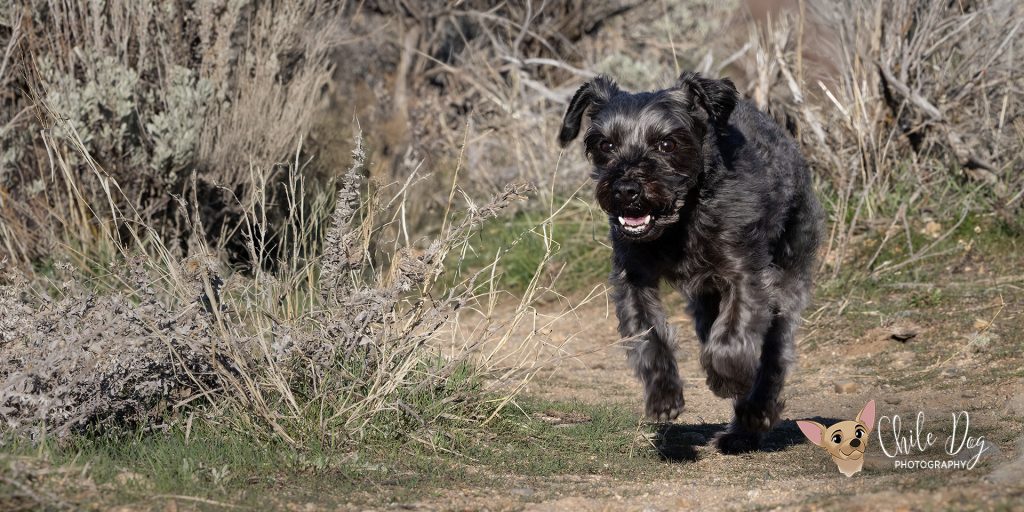
Socialization and Adaptability
Yorkipoos are sociable dogs thanks to their affectionate, friendly nature stemming from their parent breeds. They usually get along well with other animals, children, and family members. Their inclination towards people ensures they imprint quickly onto their human families. However, proper training and early exposure to different environments and beings plays a significant role in their adaptability.
Begin socializing your Yorkipoo as soon as you bring them home. Take them on walks around the park, let them meet neighbors, children, and invite friends with dogs to your home. Regular experiences like these help them to overcome any shyness or fear and encourage them to be comfortable around new things. Make sure your new puppy has all of its puppy shots first, though, before introducing them to new dogs or taking them to the pet store.
Yorkipoos have a high adaptability rate that makes them comfortable in various living situations. Known to adjust well to apartment living, they also do well in larger homes with yards. Regardless, they enjoy spending their time indoors close to their families. As companion dogs, they are more content when involved with family activities.
Adopting or Purchasing a Yorkie Poo: Things to Consider
If you're thinking about adopting or buying a Yorkipoo, it's essential to take into account the responsibilities that come along with dog ownership. This includes understanding the breed's history, health concerns, grooming needs, feeding, and exercise requirements. Additional considerations involve finding reputable breeders or rescue organizations and avoiding puppy mills. Be prepared to take time for socialization and training needs for your Yorkipoo. Remember that a Yorkipoo thrives on companionship; they need to feel like a part of the family and won't do well in an environment where they are left alone for extended periods.
Finding a Reputable Breeder or Rescue Organization
Adopting a Yorkipoo involves thorough research about the place or person you're adopting from. If you choose to adopt a Yorkipoo from a breeder, make sure they are reliable and ethical. A good breeder will be able to provide you with information about the dog's history, health issues in the breed, temperamental characteristics of the breed, and the puppy's parent dogs. They should be open and honest, answering any questions you might have honestly. Moreover, reputable breeders conduct genetic testing of their breeding dogs to minimize health risks, offering necessary health clearances for both the puppy's parents.
On the other hand, numerous Yorkipoos and crossbreed dogs are looking for a new home through rescue groups and shelters. Often you can find not only puppies, but also adult dogs who are already house trained and are desperately seeking a loving home. Do remember to ask about the dog's history, personality, and reason for being in the shelter.
Cost and Responsibilities of Ownership
Owning a Yorkipoo isn't just about the initial cost of adoption. The expense extends to their healthcare, feeding, grooming, and other essentials like dog beds, toys, leashes, and crates. R egular vet visits, vaccinations, preventive medications, and any potential health issues contribute to their healthcare costs. High-quality dog food, grooming supplies or professional grooming services, and training classes if needed, are other continuous expenses.
The responsibilities of ownership go far beyond just financial commitments. Yorkipoos require dedicated time and attention from their owners. Regular exercise, grooming, training, and socialization activities are integral to their well-being. As a pet parent, you should be prepared for daily walks and play sessions, feeding, cleaning, training, and lots of cuddle time.
Being a caring and responsible Yorkipoo owner involves considering all these factors before bringing one into your home and ensures a harmonious experience for you and your canine companion.
Conclusion
Yorkipoos, with their affectionate nature and easy adaptability, undoubtedly make for delightful companions. Easy to train and low-maintenance, they make great pets for both first-time owners and experienced dog parents. From their unique history as a designer breed to their vibrant personalities, these bundles of joy bring vitality and warmth into our homes.
Keeping a Yorkipoo healthy and content involves understanding their exercise requirements, diet needs, grooming habits, and potential health concerns. Being aware of these aspects ensures that your Yorkipoo leads a balanced and happy life. With a consistent routine that includes plenty of playtime, grooming sessions, balanced meals, and regular vet check-ups, you'll have a thriving Yorkipoo that radiates joy and companionship.
Whether it's an impromptu photo session or a designated playtime, every moment spent with a Yorkipoo is filled with energy and love. And ultimately, the bond developed with this tiny, vivacious companion, who never fails to bring a smile to your face, lends an indescribable joy to life.
Frequently Asked Questions
What is the lifespan of a Yorkipoo?
The lifespan of a Yorkie Poo typically ranges from 12 to 15 years.
Are Yorkie Poos hypoallergenic?
Yes, Yorkie Poos are known to be hypoallergenic. Thanks to their Poodle parentage, Yorkipoos usually have hair that's more akin to human hair than animal fur, making them a suitable choice for allergy sufferers due to the minimal shedding. This does not mean that all Yorkipoos will be hypoallergenic. If you are allergic, make sure to spend plenty of time with the puppies and their parents to make sure you don't react. Minimal shedding also comes with an increased need for grooming.
How easy are Yorkie Poos to train?
Yorkie Poos are comparatively easy to train because they inherit their intelligence from both parent breeds, the Yorkshire Terrier and the Poodle. Their eager disposition makes them responsive to positive reinforcement and consistency. However, their independent and stubborn streaks occasionally need gentle but firm guidance.
Do Yorkie Poos adapt well to apartment living?
Yes, Yorkie Poos adapt exceptionally well to apartment living. Their petite size, lower exercise needs, and quiet nature make them a perfect fit for apartment dwellers. Active indoors, this breed can meet most of their physical exercise requirements within the limited space they have access to. Regular exercise is critical for delaying some of the joint issues that Yorkie Poos can be prone to. Besides, it's good for you, too!
Do Yorkie Poos bark a lot?
While Yorkie Poos aren't known to be aggressive, they do have a tendency to be wary of strangers and respond with barking. This trait makes them good watch dogs. However, proper socialization and training from a young age can manage and prevent unnecessary barking.
